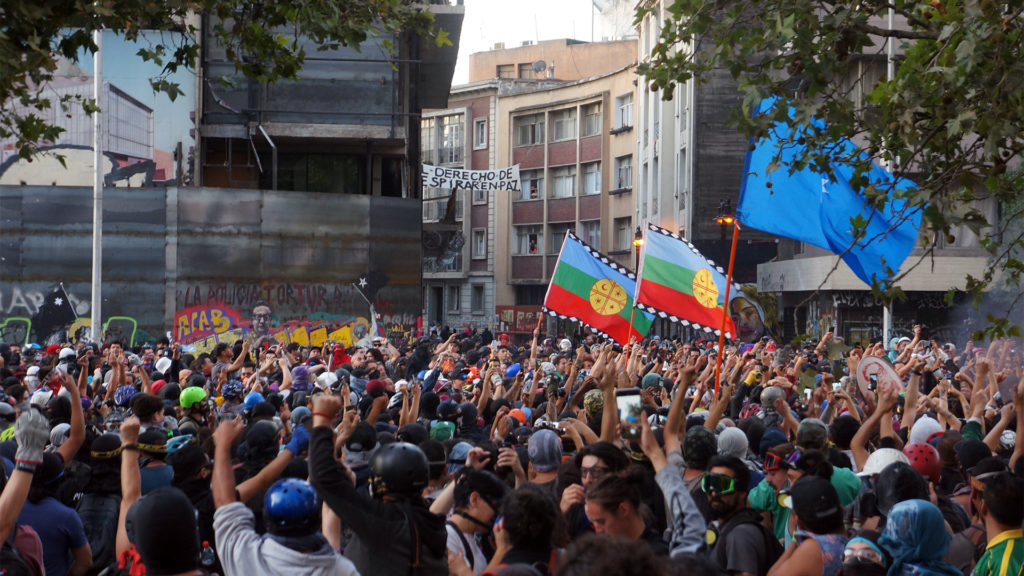by CAROLE CONCHA BELL

The Mapuche, whose ancestral territories span southern Chile and Argentina, have a long history of outright resistance to colonial occupation. The coronavirus pandemic and Chilean state’s response to it are yet another hurdle, together with criminalization and militarization, in the Mapuche struggle for autonomy.
“The Chilean government considers resource extraction and privatization as central to Chilean economic development. To this end, the state has been actively pursuing policies that prioritize the expropriation of land and capitalization of land-based resources in the regions that Mapuche consider as their ancestral homeland,” said Huseyin Cakal assistant professor at Keele University in an interview with Toward Freedom. “Thus, the Mapuche constitute perhaps one of the most disadvantaged Indigenous communities in Latin America.”
Unfortunately, the coronavirus pandemic promises to further complicate the situation for Mapuche communities. “Without access to healthcare, it is not a surprise that Mapuche are and will be the worst hit segment of the society during the COVID-19 pandemic,” said Cakal.
“We do not reap the benefits of state health or any kind of prevention that the government has adopted in other regions,” said Mapuche leader Alberto Curamil in an interview with Toward Freedom. “Instead of helping the sick, they have imposed military curfews on us.”
Curamil won the Goldman Environmental prize 2019 for mobilizing with the people of Araucanía to stop the construction of two hydroelectric projects on the sacred Cautín River in Central Chile. He bears the title of Lonko (traditional Mapuche leader), and was imprisoned on terrorism charges in 2014, spending five years in and out of prison before being absolved due to lack of evidence. In the context of the recent uprising in Chile, Curamil continues to be a target for local security forces. He was last arrested on April 8th 2020 while traveling to a Mapuche village nearby, and he says he was tortured while detained.
The majority of Mapuche people reside in Araucanía in Southern Chile, although some have migrated to the capital, Santiago, in pursuit of work. As the pandemic hit Chile, the city of Temuco, where Curamil lives, emerged early on as a coronavirus hotspot.
In the context of a pandemic, the criminalization of the Mapuche struggle to live on their ancestral lands places them at risk because of the high rates of imprisonment of activists and spiritual leaders. Poor sanitary conditions in prisons plus a high rate of infection in the general population have already placed Mapuche prisoners at risk.
Lonko Facundo Jones Huala, a Mapuche leader from Argentina extradited under terrorism laws to Chile, had close contact with a prison psychologist who tested positive for the virus. Following the incident Jones Huala was placed in isolation for two weeks further depriving him of his rights.
Toward Freedom for more